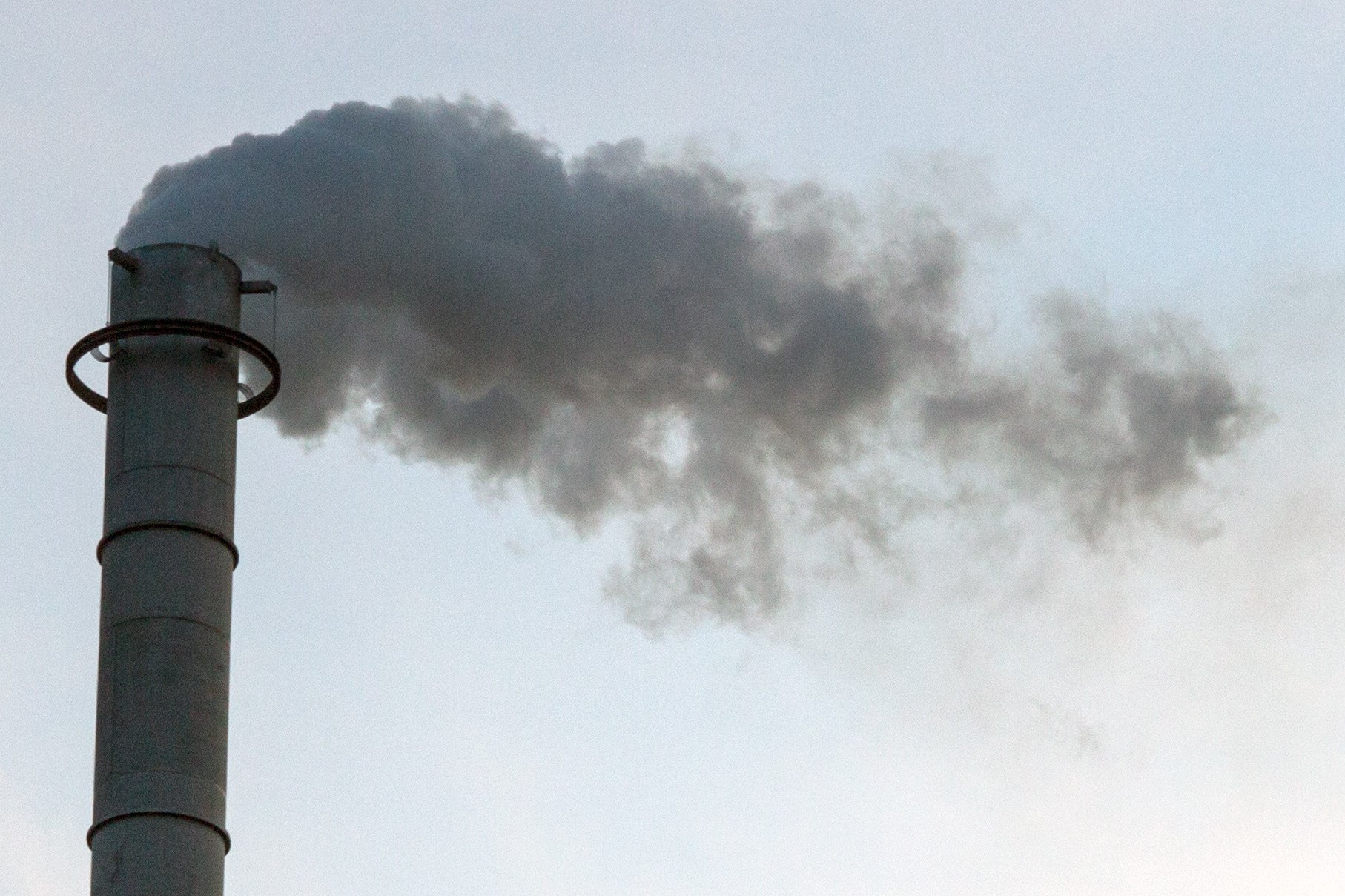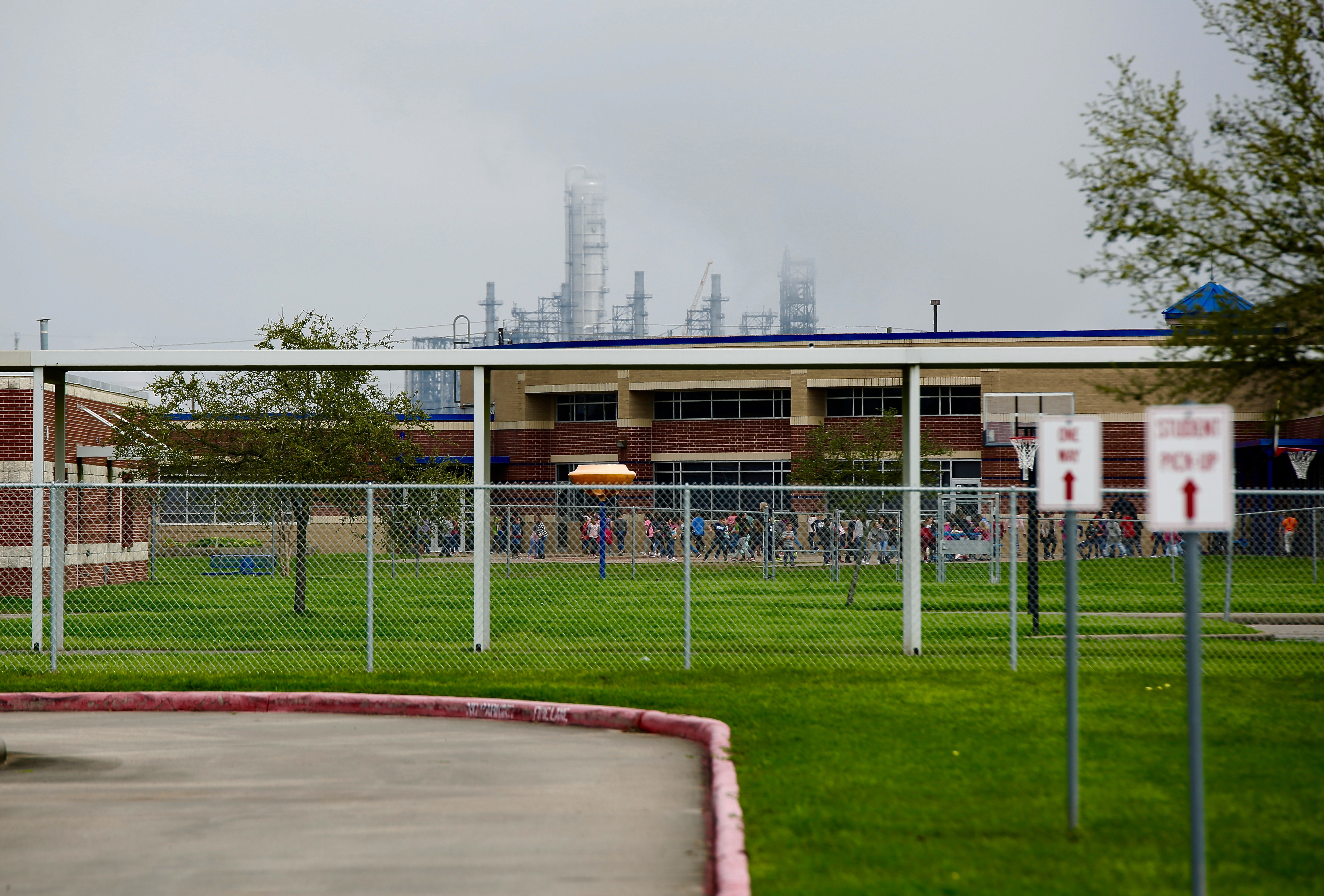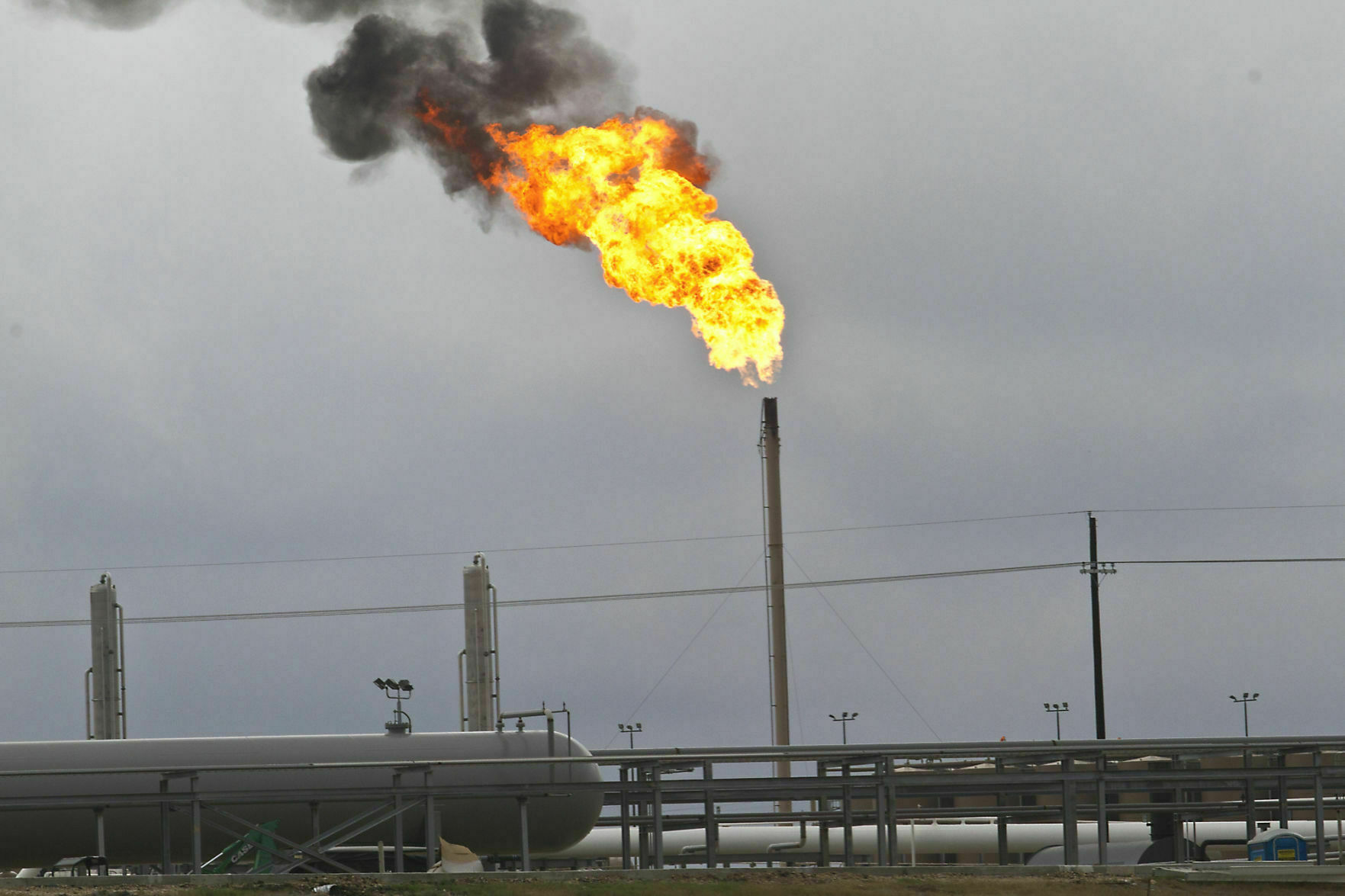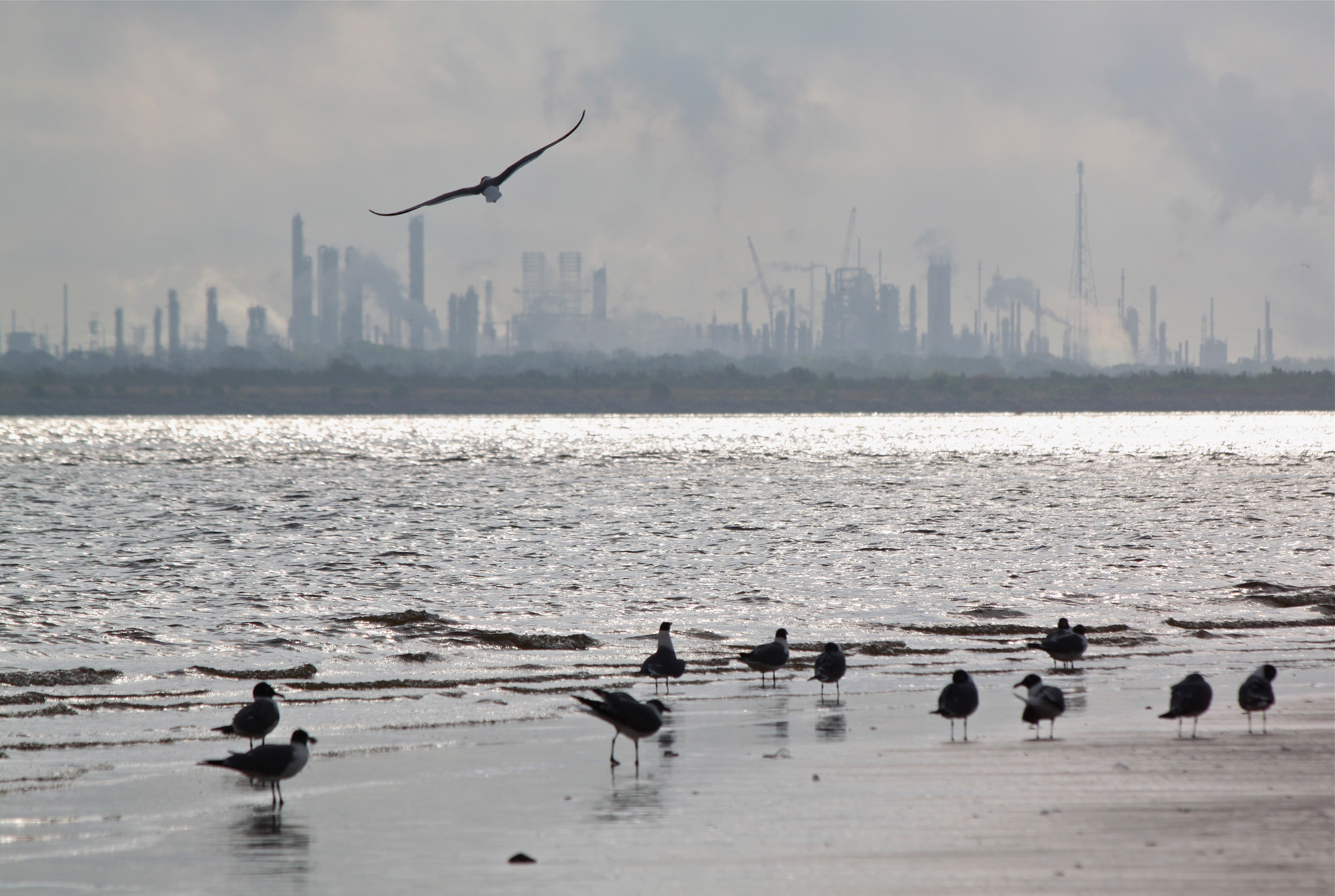
Report: As TCEQ Sits Idle, Polluters Double Illegal Air Pollution in 2018
Unauthorized emission incidents resulted in 135 million pounds of illegal air pollution, according to a new report by Environment Texas.

The oil and gas industry in Texas is largely responsible for doubling the amount of illegal air pollution in the state last year, according to a report released Wednesday. The Texas Petroleum Chemicals (TPC) plant in Port Neches—the same facility that caught fire last month, injuring three and prompting multi-day evacuations—was listed as a major emitter of butadiene, a known human carcinogen. That and other emissions, innocuously referred to as “upset events,” lead to the premature deaths of 42 Texans and $241 million in health care costs each year.
Last year, approximately 270 companies, including Chevron, Dow Chemical, and ExxonMobil, reported 4,590 unauthorized emissions incidents in the state, according to the report from advocacy group Environment Texas. Those resulted in 135 million pounds of illegal air pollution, double the amount emitted in 2017. Contaminants spewed into the sky include human carcinogens butadiene and benzene; smog-forming nitrogen oxides; and particulate matter, which can cause heart attacks, strokes, and congestive heart failure.
The biggest release occurred on August 29, 2018, when the Beaumont Gas to Gasoline Plant belched 53 million pounds of carbon dioxide over five days. The event made up the lion’s share of the 63.9 million pounds of air pollution in the Beaumont region, the most polluted area in Texas that year. The Midland region, which is the locus of the state’s fracking boom, saw 39.5 million pounds of air pollution, the second most in the state.
“Texans are sick and tired of oil refineries and petrochemical plants catching fire, exploding, and pumping out harmful pollution,” said Catherine Fraser, an air pollution fellow at Environment Texas. “The data show the problem is getting worse, not better. We need our state leaders to crack down on illegal pollution, and stop putting the interests of polluters over the rest of us.”

The Texas Commission on Environmental Quality (TCEQ) has a laissez-faire approach to enforcing federal air pollution laws, especially when dealing with monied rulebreakers. According to the report, the agency fined companies in only 1.2 percent of illegal emission events, a rate Fraser called “shockingly low.” On Wednesday, she and other environmental activists and Beaumont-area residents gathered in front of TCEQ’s offices in North Austin to demand stricter enforcement. They took particular issue with TPC’s massive butadiene release in 2018, for which TCEQ proposed fining the company a paltry $22,000.
The Trump administration’s deregulatory agenda hasn’t helped curb air pollution in Texas, either. In 2015, Obama’s EPA required Texas and 35 other states to close a loophole allowing polluters to escape penalties during upset events. Companies regularly employ the so-called “affirmative defense” after an upset event. They claim emissions were the result of a start-up, shutdown, or malfunction at a plant—basically, an unavoidable situation. The defense was invoked in 97 percent of emissions events in 2017.
In 2015, TCEQ was required to submit a plan to the EPA showing how it would curtail use of the defense. That same year, indicted Attorney General Ken Paxton filed suit against the EPA, claiming the order “make[s] it impossible for even the most carefully regulated facilities to avoid costly penalties due to unplanned events out of their control.” Paxton managed to keep the case in court until Obama was out of office, and in May, Trump’s EPA rescinded the directive. Meanwhile, Texas has cut spending for TCEQ by one-third from 2008 to 2018, limiting their ability to effectively regulate.
Despite the dire report, on Wednesday, environmental advocates scored a rare win inside TCEQ headquarters. Residents of Port Neches and Port Arthur told agency commissioners of the fallout from last month’s TPC plant explosion, imploring elected officials to hand the company a stiffer penalty for 2018’s butadiene releases. In a surprising turn of events, commissioners listened, rejecting the $22,000 fine suggested by staff and voting instead to consider forwarding the case to Paxton’s office, where a civil suit could be filed.
There’s no telling whether the attorney general will take action. But Fraser said the vote is a rare sign of encouragement. “We don’t have these successes very often. Today we’re definitely calling it a win,” she said.
Read more from the Observer:
-
The Fantastic World of Cande Aguilar: The wildly imaginative Brownsville painter fuses pop culture with abstraction, family life, and his love of South Texas.
-
Why a Small Offense Shouldn’t Have Life-Altering Consequence: Nearly 10 years ago, I was arrested and detained in jail for 45 days after failing to appear in court for a low-level, non-violent offense. Today, I’m fighting so that others don’t have to go through what I did.
-
Federal Report Flags High Rates of Sexual Abuse in Texas Juvenile Lockups: In three Texas youth prisons, at least one in seven juveniles says they’ve been sexually victimized, according to a new report from the U.S. Department of Justice.


